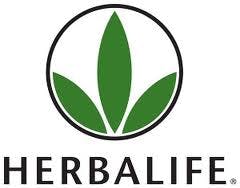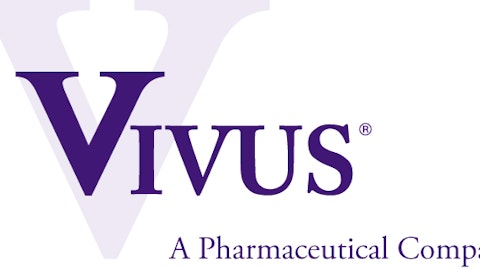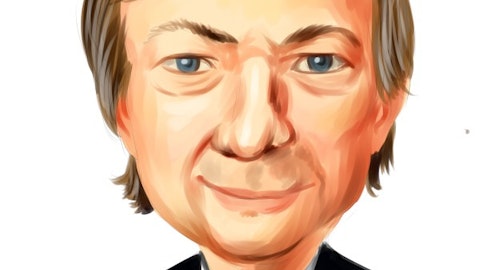Obesity rates have been steadily growing in the developed world, in particular in the US, which has the world’s highest rate of obesity. Most recently, the obesity epidemic prompted a controversial legal battle over the sale of sugary drinks in New York City.
But as is the nature of capitalism, numerous companies have sprung up to fight back. Investors interested in the space should be aware of a few companies in particular: Weight Watchers International, Inc. (NYSE:WTW), Herbalife Ltd. (NYSE:HLF), NutriSystem Inc. (NASDAQ:NTRI), Arena Pharmaceuticals, Inc. (NASDAQ:ARNA) and Vivus, Inc. (NASDAQ:VVUS).
Weight Watchers’ old program has been reinvented in the mobile world
Weight Watchers is the oldest company on this list, having been founded roughly 50 years ago. Throughout its history, the company has pushed a traditional program of diet and exercise combined with regular support group meetings.
The rise of mobile computing has provided an interesting twist, however. Through the use of mobile apps, the company offers a subscription-based service that makes it easier than ever for customers to follow the diet.

That guidance cut was the second in a six-month period; the company had cut its 2012 guidance back on Aug. 1. There’s also the issue of potential worker frustration — a New York Times interview with a Weight Watcher’s (NYSE:WTW) employee revealed that the company’s rank-and-file is paid “less than kids who work at McDonald’s Corporation (NYSE:MCD).”
Herbalife brings multi-level marketing to weight loss
Depending on who you want to listen to, Herbalife Ltd. (NYSE:HLF) is either a legitimate weight loss company or an illegal pyramid scheme.
Herbalife sells nutritional supplements, including meal-replacement shakes. But rather than sell directly to the public, Herbalife uses a multi-level marketing system that has “distributors” recruit other “distributors” to help sell the product.
This scheme in particular has attracted hedge fund magnate Bill Ackman, whose fund Pershing Square is currently short about one-fifth of Herbalife’s shares. In a presentation over 300 slides long, Ackman laid out his case for why he believes Herbalife to be an illegal pyramid scheme. More recently, The Verge has exposed some of the shoddy practices of Herbalife Ltd. (NYSE:HLF)’s top distributors.
On the other side of the trade, activist investor Carl Icahn has bought up about 15% of the company. In an appearance on CNBC, Icahn argued that Herbalife was a center of a paradigm shift in retail, and that its products helped fight the obesity epidemic. He also hinted that the company could be taken private.
NutriSystem is a small-cap turnaround
Shares of NutriSystem are down nearly 30% in the last year, and 50% in the last three years. The company hired a new CEO, Dawn Zier, last November.
Zier fully admits that she’s trying to engineer a turnaround. As opposed to Weight Watcher’s system of portion control, NutriSystem sells diet food directly to customers: consumers sign up, and are sent a package of pre-made foods that they eat throughout the month.
From a stock perspective, shares are interesting in the sense that they pay a large dividend. At current levels, NutriSystem yields over 8.5%.
Zier has begun her turnaround by working with Wal-Mart Stores, Inc. (NYSE:WMT) to sell small batches of food through the retail giant. In theory, consumers who sample through Wal-Mart should be likely to commit to purchasing directly through the company.
Arena Pharma and Vivus make obesity drugs
Until recently, the FDA has been loathe to approve a drug to fight obesity. That changed last year when both Arena Pharmaceuticals, Inc. (NASDAQ:ARNA)’s Belviq and VIVUS, Inc. (NASDAQ:VVUS)’ Qsymia were approved by the FDA.
As with all small-cap biotechs, shares have been volatile. Over the last year, Arena shares are up over 160%, with most of that gain coming after the FDA’s approval. Since then, shares have calmed down, and have actually declined over 8% in the last six months.
In a note released March 5, analysts at JPMorgan cut their price target on Arena to $7 but maintained their Neutral rating. JPMorgan reasoned that the company’s drug would run into problems given the high out-of-pocket cost. In fact, JPMorgan warned that Belviq could ultimately do worse than Vivus’ Qsymia.
Vivus’ struggles with Qsymia have taken their toll on the stock — trading near $10.50, shares are lower than they were prior to Qsymia being approved. Over the last six months, shares have shed over 40%.
VIVUS, Inc. (NASDAQ:VVUS) has been unable to sell Qsymia to the public, which has attracted interest activist investors. Qvt Financial holds Vivus as the top stock in its portfolio, and has pushed management for a sale of the company.
Investing around the obesity epidemic
Despite the fact that obesity is a growing and dangerous epidemic, no company in particular seems to be well poised to respond to this unfortunate trend.
Weight Watchers and NutriSystem offer effective weight loss programs, but both companies have struggled to attract members in recent months. Meanwhile, Herbalife Ltd. (NYSE:HLF)’s stock is more affected by an ongoing hedge fund dispute than any trends in obesity. And while Arena Pharmaceuticals, Inc. (NASDAQ:ARNA) and VIVUS, Inc. (NASDAQ:VVUS)’ medical solutions seem to be magic bullets, there’s doubts about the drugs actually selling.
In the end, this is one trend investors might wish to stay away from.
The article Stocks to Know for the Obesity Epidemic originally appeared on Fool.com.
Copyright © 1995 – 2013 The Motley Fool, LLC. All rights reserved. The Motley Fool has a disclosure policy.




